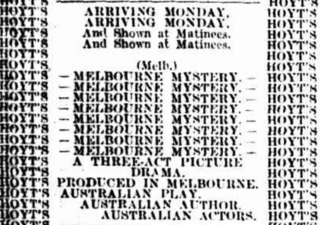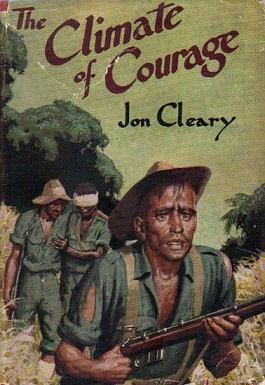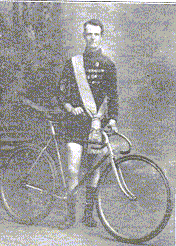Related Research Articles

Millicent Preston-Stanley was an Australian feminist and politician who served as the first female member of the New South Wales Legislative Assembly. In 1925, she became the second woman to enter government in Australia. She was also among the first women in New South Wales to become Justices of the Peace and served as president of the Women Justices Association from 1923 to 1926. Throughout her life, Preston-Stanley advocated for women's rights, health reform, and temperance.

Ronald Grant Taylor was an English-Australian actor best known as the abrasive General Henderson in the Gerry Anderson science fiction series UFO and for his lead role in Forty Thousand Horsemen (1940).

In New South Wales, Australian rules football dates back to the 1860s colonial era, with organised competitions being continuous since the 1880s. It is traditionally popular in the outback areas of the state near the Victorian and South Australian borders— in the Murray Region, in the Riverina and in Broken Hill. These areas form part of an Australian cultural divide described as the Barassi Line. To the west of the line it is commonly known as "football" or "Australian Football" and to east of the line, it is promoted under the acronym "AFL" by the main development body AFL NSW/ACT. There are more than 15 regional leagues though some are run from other states, the highest profile are AFL Sydney and the Riverina Football Netball League. With 80,572 registered players, it has the third most of any jurisdiction.

Randolph Bedford was an Australian poet, novelist, short story writer and Queensland state politician.

The Assigned Servant, or the Life Story of a Deported Convict is a 1911 Australian silent film about a convict who is transported to Van Diemen's Land. It was made by the husband-and-wife team of John and Agnes Gavin and is considered a lost film.

A Melbourne Mystery is a 1913 Australian silent film starring John Gavin. Another title is The Unseen Hand.

Alfred Rolfe, real name Alfred Roker, was an Australian stage and film director and actor, best known for being the son-in-law of the celebrated actor-manager Alfred Dampier, with whom he appeared frequently on stage, and for his prolific output as a director during Australia's silent era, including Captain Midnight, the Bush King (1911), Captain Starlight, or Gentleman of the Road (1911) and The Hero of the Dardanelles (1915). Only one of his films as director survives today.
The Crisis is an Australian melodrama film directed by W. J. Lincoln. It was inspired by a painting, The Crisis by Frank Dicksee, and is considered a lost film.
The Luck of Roaring Camp is a 1911 Australian feature-length film directed by W. J. Lincoln now considered a lost film. It was highly regarded in its day, in part because it was based on a play that was popular with audiences.

Dan Morgan is a 1911 Australian film from Cosens Spencer about the bushranger Daniel Morgan. It was said to be starring "Alfred Rolfe and company". Rolfe directed three movies for Spencer, all starring himself and his wife Lily Dampier so there is a chance he may have directed this one and that it starred his wife. A prospectus for the Australian Photo Play Company said he directed it. It is considered a lost film.

The Life Story of John Lee, or the Man They Could Not Hang is a 1912 Australian silent film based on a stage play about the true life story of John Babbacombe Lee.

The Life Story of John Lee, or the Man They Could Not Hang is a 1921 Australian silent film based on the true life story of John "Babbacombe Lee. It is a remake of a 1912 film with some extra scenes of Lee's childhood.

The Climate of Courage is a 1954 novel by Australian writer Jon Cleary. It was his fifth published novel. It is set during World War II and involves a group of Australian soldiers who have returned from service in the Middle East.
The Kelly Gang; or the Career of the Outlaw, Ned Kelly, the Iron-clad Bushranger of Australia is an 1899 Australian play about bushranger Ned Kelly. It is attributed to Arnold Denham but it is likely a number of other writers worked on it.
NSW Bookstall Company was a Sydney company which operated a chain of newsagencies throughout New South Wales. It was notable as a publisher of inexpensive paperback books which were written, illustrated, published and printed in Australia, and sold to commuters at bookstalls in railway stations and elsewhere in New South Wales.

Duncan "Don" Kirkham was an Australian racing cyclist. Kirkham was a regular competitor in Australian long distance cycling races. He won the Goulburn to Sydney Classic in 1910, riding off scratch and setting the fastest time. In 1911 he was 2nd and set the fastest time, riding the 131 miles (211 km) in a record time of 6h 19' 31". Kirkham's time was not beaten until 1925 by Richard "Fatty" Lamb. He had previously finished 5th in 1909. and finished outside the top 20 in 1912.
George Smith was an Australian professional soccer player who played as a forward. He captained the Australia national soccer team in 1933. Often considered the best centre-forward in Australian soccer in the 1930s, he had an average of 2.66 goals per game for Australia and has had many goalscoring records throughout his 17-year career.
Catching the Kellys is a 1879 Australian comic stage play by Joseph Pickersgill about the pursuit for Ned Kelly.
The Sunny Corner is a 1915 Australian stage play by Temple Harrison that was originally produced by William Anderson.
References
- ↑ "The All Australian Play The Boss Cockie", The Bulletin, Sydney, N.S.W: John Haynes and J.F. Archibald, 1 Jul 1920, nla.obj-678944611, retrieved 10 May 2024– via Trove
- ↑ ""The Boss Cockie"". The Newcastle Sun . No. 698. New South Wales, Australia. 19 June 1920. p. 6. Retrieved 10 May 2024– via National Library of Australia.
- ↑ "Death of Mr. R. Bedford". The Telegraph . Queensland, Australia. 8 July 1941. p. 5 (City Final Last Minute News). Retrieved 10 May 2024– via National Library of Australia.
- ↑ "Proceedings Under the Copyright Act of 1912". Commonwealth of Australia Gazette . No. 9. Australia, Australia. 20 January 1916. p. 105. Retrieved 10 May 2024– via National Library of Australia.
- ↑ ""The Boss Cockie"". The Newcastle Sun, 19 june 1920, p6. Retrieved 13 December 2024.
- ↑ "THEATRES". Referee. No. 1745. New South Wales, Australia. 18 August 1920. p. 13. Retrieved 10 May 2024– via National Library of Australia.
- ↑ "Playhouse—"The Boss Cockie."". The Argus (Melbourne) . No. 23, 160. Victoria, Australia. 25 October 1920. p. 10. Retrieved 10 May 2024– via National Library of Australia.
- ↑ ""THE BOSS COCKIE."". The Sydney Morning Herald . No. 25, 776. New South Wales, Australia. 16 August 1920. p. 5. Retrieved 10 May 2024– via National Library of Australia.
- ↑ "The Playhouse". Table Talk . No. 1839. Victoria, Australia. 28 October 1920. p. 13. Retrieved 10 May 2024– via National Library of Australia.